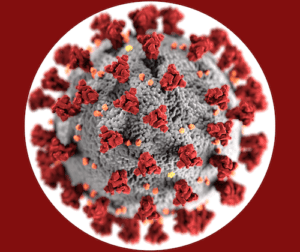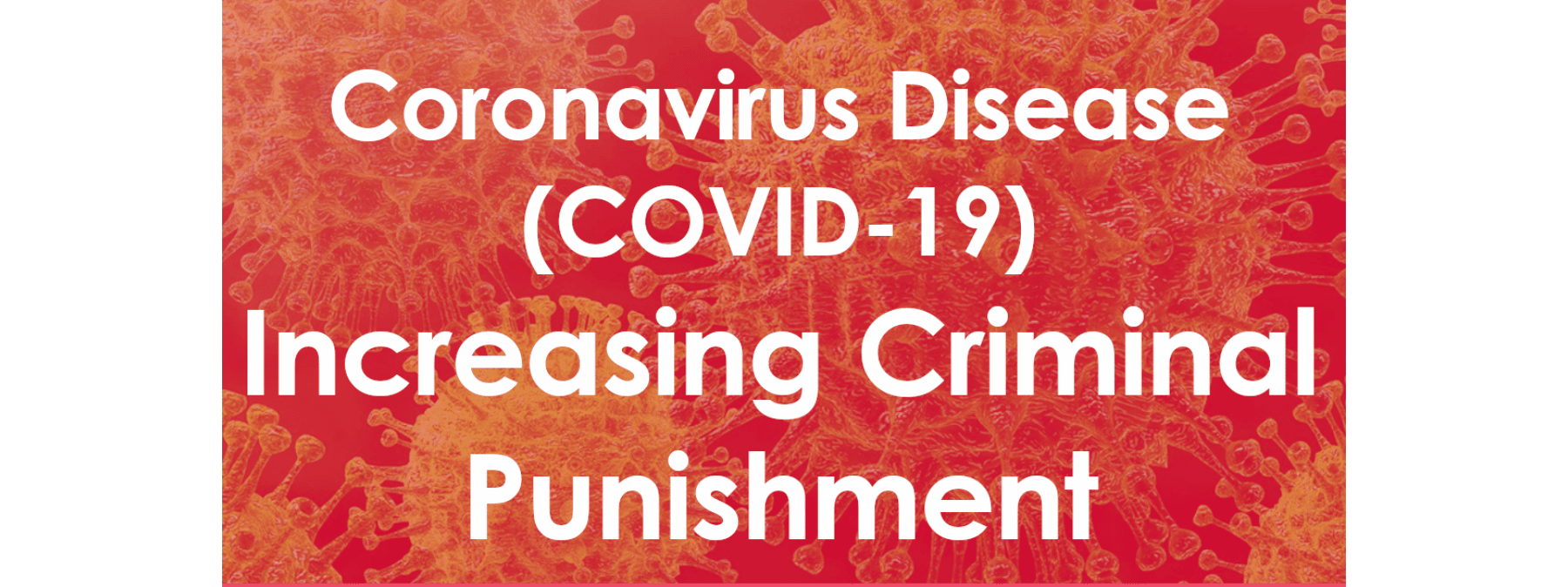Coronavirus (COVID-19) and Texas Criminal Law
The possible punishment for many Texas crimes may increase because of the Coronavirus disease (COVID-19). Texas Penal Code Section 12.50 (Penalty if Offense Committed in Disaster Area or Evacuated Area) bumps the punishment for a crime to the next higher category if committed in a disaster area. This applies when someone commits a crime, and the State proves the crime was committed in an area that was, at the time of the offense, subject to a declaration of state of disaster.
Under Texas Emergency Management laws, a “Disaster” includes the occurrence or imminent threat of widespread or severe damage, injury, or loss of life or property resulting from any natural or man-made cause, including an “epidemic” or “other public calamity requiring emergency action.” (Tex. Gov’t Code Ann. § 418.004).

Recent Disaster Declarations
On Friday, March 12, 2020:
- The Texas Governor Greg Abbott declared a ‘state of disaster’ over coronavirus and says drive-through testing to start in San Antonio. (Dallas Morning News)
- The Dallas mayor declared a state of emergency after the county confirmed 5 more cases of coronavirus. (Dallas Morning News).
- The Austin city council extended a disaster declaration indefinitely in response to coronavirus concerns. (KXAN NBC).
A “state of disaster” can be declared by:
- The president of the United States under the Robert T. Stafford Disaster Relief and Emergency Assistance Act (42 U.S. Code § 512);
- The Texas governor under Section 418.014, Government Code; or
- The presiding officer of the governing body of a political subdivision under Section 418.108, Government Code.
Crimes Applying the Punishment Enhancement
The specific crimes this law applies to are:
- Assault (Tex. Penal Code Ann. § 22.01) – If the assault charge is normally a Class A misdemeanor, then the minimum term of confinement for the offense is increased to 180 days (rather than zero days);
- Robbery (Tex. Penal Code Ann. § 29.02) – First-Degree robbery charges are not increased;
- Burglary (Tex. Penal Code Ann. § 30.02) – First-Degree burglary charges are not increased;
- Theft (Tex. Penal Code Ann. § 31.03) – If the theft charge is normally a Class A misdemeanor, then the minimum term of confinement for the offense is increased to 180 days (rather than zero days).
The particular Penal Code provision says that for theft, the defense of Necessity may apply. It is unclear why this is specifically included. Presumably, Necessity could be a defense to any offense.
The defense of Necessity is a justification defense. (Tex. Penal Code Ann. § 9.22). Otherwise criminal conduct may be justified if:
- The person charged reasonably believed the conduct was immediately necessary to avoid imminent harm;
- The desirability and urgency of avoiding the harm clearly outweighed, according to ordinary standards of reasonableness, the harm sought to be prevented by the criminal offense; and
- Another law does not specifically exclude a crime from a justification defense.
The increased punishment also applies to areas that are subject to an emergency evacuation order. An “emergency evacuation order” means an official statement issued by the governing body of this state or a political subdivision of this state to recommend or require the evacuation of all or part of the population of an area stricken or threatened with a disaster. This not likely applicable to the Coronavirus disease (COVID-19) scenario. This usually applies in cases of a hurricane, fire, drought, and toxins causing an evacuation.


